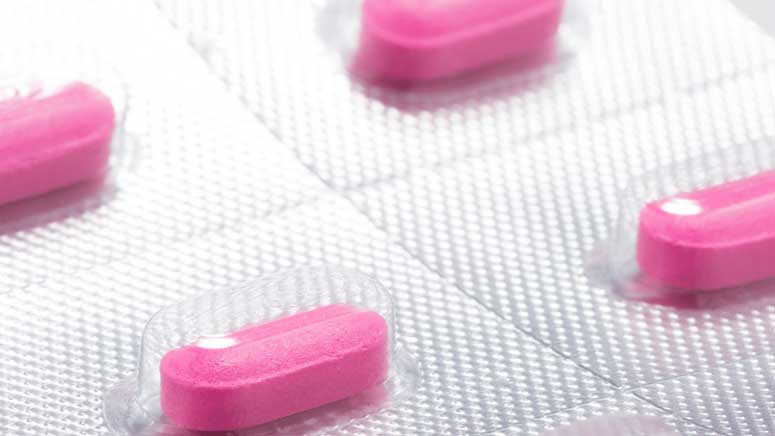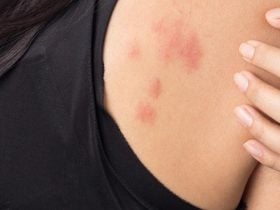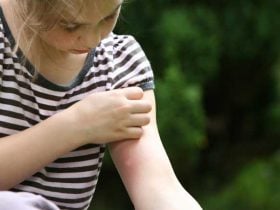Antihistamines

Antihistamines like Benadryl can help reduce redness and itching associated with bedbug bites if they don’t resolve within a week or two. This drug works by reducing or suppressing the effects of a chemical compound in the body called histamine, which triggers itching. Benadryl also contains other active ingredients like allantoin, and zinc acetate, which serve as skin protectants. Antihistamines can help relieve symptoms such as xeroderma, weeping, or oozing.
This drug is readily absorbed and takes maximum effect within an hour after ingesting. The soothing effects of diphenhydramine last from four up to six hours. When a patient experiences serious symptoms of bedbug bites, Benadryl can be administered as an intravenous injection. It takes effect much faster in its injectable form. It is best taken at night-time because it has a drowsy effect and works as a sleeping aid.
Calamine Lotion
In some cases, the bite spots can develop into pus-fulled blisters that must be drained for treatment. After draining the pus out, you should cover it with a bandage to prevent it from getting infected. Blisters caused by bedbug bites can cause itchiness and pain. You can apply calamine lotion to the blisters to help speed recovery by drying them up. The active ingredients in calamine lotion are zinc oxide and iron oxide, which help relieve skin irritation and tighten pores.
Calamine lotion also helps to control itchiness, preventing further damage to your skin.













